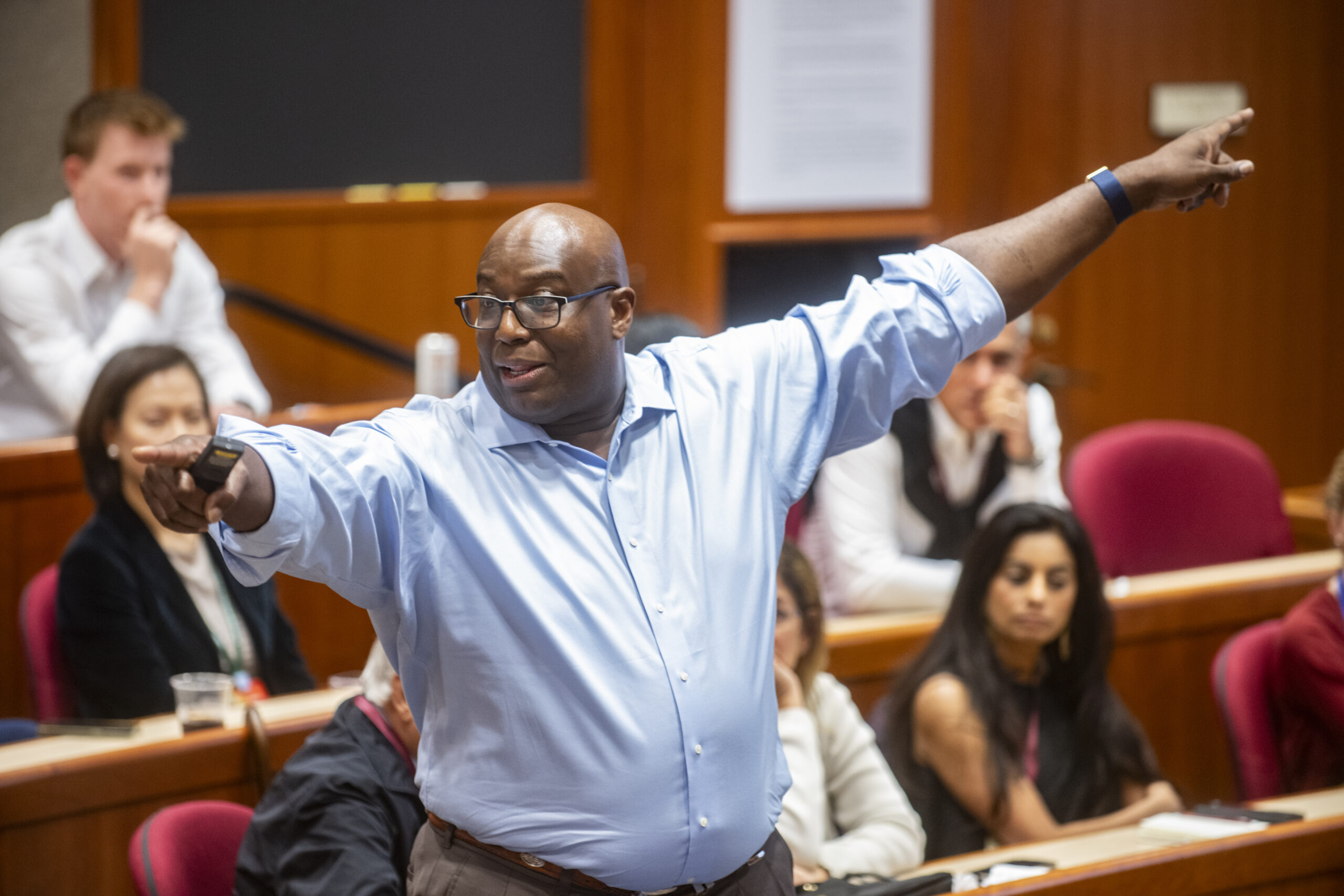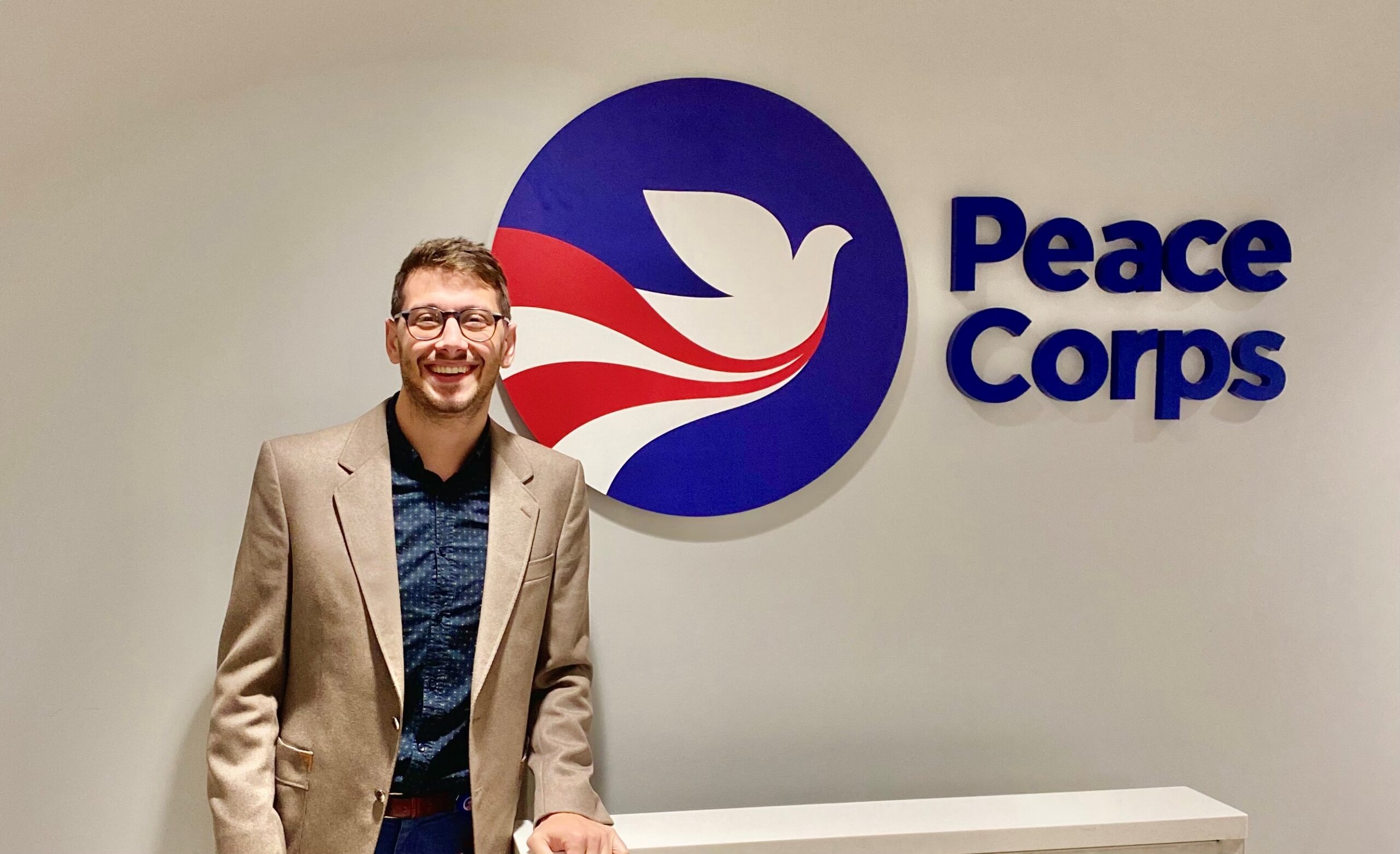

The HBS Summer Fellows Program enables students to apply their classroom training as they explore career opportunities in roles or regions where compensation is generally lower than the traditional MBA level. This summer, we are connecting with some of our 75 Social Enterprise Summer Fellows, who are working around the world to develop skills and knowledge while having significant responsibility and high impact.
What are you working on this summer?
This summer, I had the privilege of serving at the United States Peace Corps, a US federal agency operating in over 60 countries with thousands of volunteers. These volunteers live and work side-by-side with community members to learn the local language, work on locally prioritized projects, build relationships, exchange cultures and knowledge, and help transform lives for generations. As a Special Advisor on Innovation to the Associate Director of Global Operations, I was involved in helping reshape the agency's approach to volunteer service. My role revolved around refining how the agency engages volunteers, conducting data analysis to enhance recruitment strategies, and supporting the Peace Corps Response program, which deploys advanced, specialized volunteers for projects of 3–12 months.
Why did you choose this internship for the summer?
The legacy and commitment of the Peace Corps to fostering peace and friendship strongly resonates with me. Merging my passions for peacebuilding, international development, and coexistence with a desire to gain federal government experience in an organization that has left an indelible impact worldwide felt like a natural fit. The words of John F. Kennedy, who founded the Peace Corps, "to whom much is given, much is expected," serves as a rallying call for –and my efforts within—the Peace Corps. Working again with a former manager, Scott Beale, who was appointed by President Biden to lead global programs, offered an up-close perspective on federal agency operations. The philanthropic and nonprofit sectors combined revenue are in the billions, while the US government’s budget is in the trillions, so understanding this lever for social change is important.
What were your goals for this summer?
My summer goals were twofold: contributing to Peace Corps' mission in a time of rapid transformation and gaining insight to address my career journey. I questioned how the federal government facilitates social change, and if my role as a change-agent held potential in this sector. Conversations with Mark Gearan, former Peace Corps Director who launched the original iteration of Peace Corps Response, affirmed the agency's nature and intention to be innovative. Balancing renewal and reinvention with a commitment to tradition emerged as a recurring theme. As a social entrepreneur, I understand the importance of respecting Peace Corps' institutional knowledge while pushing boundaries to address challenges faced in underserved global communities.
How has your MBA skillset prepared you to be successful in this role?
The technical and operational skills gained at HBS have been invaluable in addressing opportunities at the Peace Corps. I laid the groundwork to organize volunteer recruitment and placement processes to maximize the impact and help ease volunteers to participate in their transformative service. The management skillset gained during HBS have been vital in operations management and technical issues. Throughout the summer, I noticed how my experience as a social sector strategist and skills from HBS and Harvard Kennedy School served me to maximize efficiencies and enhance operations. For instance, after witnessing several program proposals, I brought forth best practices for how to develop and run agency-wide pilots to test innovative volunteering models. These programs have the potential to aid the agency in improving volunteer service and further develop Peace Corp’s work with youth and sustainable locally-driven change in communities around the globe.
How has this summer influenced your thinking on future involvement in social enterprise?
Witnessing the Peace Corps' commitment to collaboration and sustainable progress in the face of weighty global challenges has reignited my dedication to social entrepreneurship. Pioneering local volunteer partnerships and conceptualizing learning and certification programs highlights the massive synergies that exist between government, business, and local communities. The need for reimagination in service organizations, given global volunteering declines post-COVID, underscores the imperative of collective action. I'm now more committed to being a steward of systems change and peacebuilding and coexistence and wielding my private and public sector experiences to be a bridge across sectors to champion social causes.
How can someone learn more about your organization?
To delve deeper into the Peace Corps' innovative vision for peace and friendship visit their official website at peacecorps.gov. Professionals with experience or advanced degrees can explore Peace Corps Response for unique opportunities.